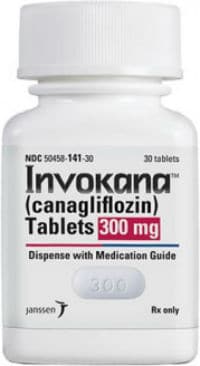
Free Confidential Lawsuit Evaluation: If you or a loved one was diagnosed with ketoacidosis after taking a diabetes medication, you should contact our law firm immediately. You may be entitled to compensation by filing a suit against the manufacturer and our lawyers can help.
What’s the Problem?
On May 15, 2015, the FDA issued a Drug Safety Communication regarding an increased risk of “acidosis, diabetic ketoacidosis or ketosis” with SGLT2 inhibitor type 2 diabetes medications. SGLT2 inhibitors include:
- Invokana (canagliflozin)
- Invokamet (canagliflozin and metformin)
- Farxiga (dapagliflozin)
- Xigduo XR (dapagliflozin and metformin)
- Jardiance (empagliflozin)
- Glyxambi (empagliflozin and linagliptin)
According to the FDA, at least 20 incidences of diabetic ketoacidosis were reported in patients treated with SGLT2 inhibitors between March 2013 and June 6, 2014. All cases required hospitalization or an emergency room visit to treat. As a result of these problems, FDA on December 4, 2015, required that the entire class of SGLT2 inhibitors have their labels updated with a warning about the ketoacidosis risk.
What is Ketoacidosis?
Diabetic ketoacidosis occurs when molecules called “ketones” accumulate in the bloodstream, increasing the blood’s acidity. These ketones are typically manufactured by the liver during fasting or low carbohydrate diets, and are used by cells as energy as a replacement for glucose (sugar).
When there are too many ketone bodies in the blood for the cells to use, they begin to build up. The body tries to excrete them through the urine, which can lead to dehydration, hypotension and tachycardia, which often require hospitalization and in some cases lead to death.
Symptoms
Signs and symptoms of diabetic ketoacidosis include:
- Trouble breathing
- Nausea
- Vomiting
- Abdominal pain
- Confusion or difficulty concentrating
- Unusual fatigue or sleepiness
- Dry or flushed skin
Treatment
Hospitalization is usually required in patients with ketoacidosis due to the severity of accompanying symptoms. Patients are typically given intravenous (IV) fluids, electrolytes and, particularly in diabetics, insulin. This may also result in additional complications from low blood sugar, low potassium and swelling in the brain.
Complications
If untreated, diabetic ketoacidosis can result in the following complications:
- Cerebral edema (swelling and fluid buildup in the brain)
- Heart attack
- Blood clots
- Extremely low blood pressure (hypotension)
- Intestinal tissue damage due to lack of blood flow
- Kidney failure
- Diabetic coma (passing out for long periods of time)
- Death
Do I Have a Diabetic Ketoacidosis Lawsuit?
The Class Action Litigation Group at our law firm is an experienced team of trial lawyers that focus on the representation of plaintiffs in diabetic ketoacidosis lawsuits. We are handling individual litigation nationwide and currently accepting new injury and death cases in all 50 states.
Free Confidential Case Evaluation: Again, if you got ketoacidosis from a type 2 diabetes drug, you should contact our law firm immediately. You may be entitled to a settlement by filing a suit and we can help.
